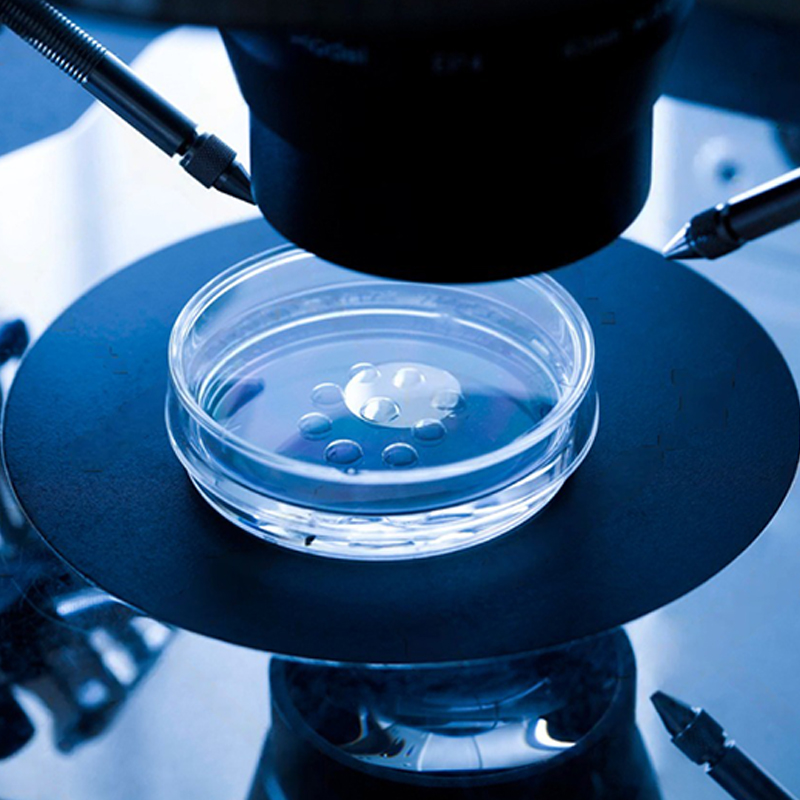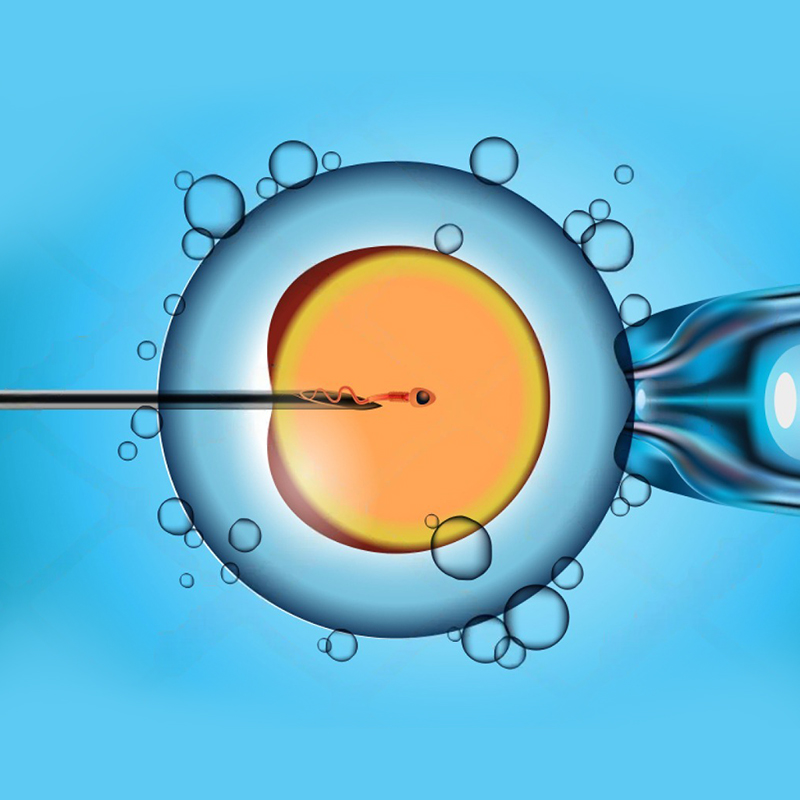Enhancing Your IVF Journey with PGT-A: A Pathway to a Healthy Pregnancy at Yashoda IVF Centre
Embarking on an In Vitro Fertilization (IVF) journey is a significant step filled with hope and anticipation. At Yashoda IVF Centre, our primary goal is to help you achieve your dream of a healthy baby. Modern reproductive medicine offers advanced tools to enhance the chances of success, and one of the most impactful is Preimplantation Genetic Testing (PGT). This sophisticated technology allows us to assess the genetic health of embryos before they are transferred to the uterus. Within the PGT family of tests, PGT-A stands out as a critical option for many couples.
What is Preimplantation Genetic Testing (PGT-A)?
PGT-A (Preimplantation Genetic Testing for Aneuploidies) screens IVF embryos for chromosomal abnormalities (aneuploidy) before implantation. Humans have 46 chromosomes; incorrect numbers can cause IVF failure, miscarriage, or genetic conditions like Down syndrome. This crucial Embryo Genetic Testing refines IVF with Genetic Screening by identifying chromosomally normal embryos. PGT-A aims to select the healthiest embryos for transfer, helping to increase the chances of a successful pregnancy and reducing risks associated with aneuploidy.
IVF often comes into play for different infertility issues, including:
Why is PGT-A Recommended?
The decision to incorporate PGT-A into an IVF cycle is made in consultation with fertility specialists at Yashoda IVF Centre, considering individual circumstances. This advanced Preimplantation Genetic Testing technique is recommended for several key reasons:
To Improve IVF Success Rates: By identifying and selecting chromosomally normal (euploid) embryos for transfer, PGT-A can significantly increase the chance of successful implantation and a live birth per transfer. Embryos with the correct number of chromosomes have a higher developmental potential.
To Reduce the Risk of Miscarriage: Chromosomal abnormalities are a primary cause of early pregnancy loss. Transferring a euploid embryo identified through PGT-A substantially lowers the heartbreaking risk of miscarriage, offering greater peace of mind to expectant parents.
To Select Chromosomally Normal Embryos: PGT-A provides vital information about the chromosomal makeup of each embryo, enabling embryologists and clinicians to choose the embryo with the highest potential for developing into a healthy baby. This selection process is a cornerstone of effective IVF with Genetic Screening.
PGT-A is especially useful for individuals or couples in specific situations:
Women Over 35 (Advanced Maternal Age): As women age, the risk of producing eggs with chromosomal abnormalities increases. PGT-A can be particularly beneficial in identifying chromosomally normal embryos in this group, improving their chances of IVF success.
Recurrent IVF Failure: For couples who have experienced multiple unsuccessful IVF cycles despite transferring seemingly good-quality embryos, PGT-A can help determine if underlying chromosomal issues in the embryos were a contributing factor. Identifying and transferring euploid embryos can break this cycle of disappointment.
Recurrent Pregnancy Loss: Similar to recurrent IVF failure, a history of multiple miscarriages can be due to chromosomal abnormalities in the embryos. PGT-A helps select chromosomally sound embryos, thereby reducing the risk of further pregnancy loss.
Male Factor Infertility: Certain types of male infertility, particularly those associated with severe sperm abnormalities, can increase the risk of aneuploidy in embryos. PGT-A can be a valuable tool in these cases to ensure the selection of chromosomally balanced embryos.
How is PGT-A Performed?
The PGT-A procedure is intricately linked with the IVF process. Here’s a step-by-step overview:
Embryos are Created via IVF: The journey begins with a standard IVF cycle. The female partner undergoes ovarian stimulation to produce multiple eggs, which are then retrieved and fertilized with sperm in the laboratory1 to create embryos.
Embryo Culture and Biopsy: The created embryos are cultured in the lab for five to six days until they reach the blastocyst stage – an advanced stage of development comprising hundreds of cells. At this point, a highly skilled embryologist performs an embryo biopsy. This delicate procedure involves carefully removing a few cells (typically 3-5 cells) from the trophectoderm, which is the part of the embryo that will eventually form the placenta. This biopsy is performed with precision to minimize any risk to the embryo.
Genetic Analysis: The biopsied cells are then sent to a specialized genetics laboratory. Here, the cells are analyzed using advanced molecular techniques, such as Next-Generation Sequencing (NGS), to count the number of chromosomes and identify any aneuploidies. This Embryo Genetic Testing process provides a comprehensive chromosomal profile for each biopsied embryo.
Selection and Embryo Transfer: Based on the PGT-A results, embryos identified as chromosomally normal (euploid) are selected for transfer into the mother's uterus. Any suitable surplus euploid embryos can be cryopreserved (frozen) for future use. By transferring only euploid embryos, the chances of a successful and healthy pregnancy are maximized.
Benefits of PGT-A
Incorporating PGT-A into your IVF treatment at Yashoda IVF Centre can offer several significant benefits:
Higher IVF Success Rates Per Transfer: Selecting chromosomally normal embryos for transfer directly translates to a higher chance of implantation and a successful live birth.
Reduced Time to Pregnancy: By avoiding the transfer of embryos that are unlikely to implant or result in a viable pregnancy, PGT-A can shorten the time it takes to achieve a successful pregnancy, reducing the number of IVF cycles needed.
Minimizes Risk of Certain Genetic Disorders: PGT-A effectively screens for conditions caused by an abnormal number of chromosomes, such as Down syndrome, Edwards syndrome, and Patau syndrome, thus reducing the risk of having a child with these specific genetic disorders.
Reduces Emotional and Financial Burden: Failed IVF cycles and miscarriages can take a significant emotional and financial toll. PGT-A can help reduce this burden by increasing the efficiency of the IVF process and lowering the risk of such heartbreaking outcomes.
Increased Confidence in Single Embryo Transfer (SET): With the knowledge that an embryo is chromosomally normal, clinicians can more confidently recommend transferring a single embryo. This reduces the risks associated with multiple pregnancies (twins or triplets), such as premature birth and other complications for both mother and babies.
PGT-A vs Other Types of Genetic Testing
It’s important to understand that PGT-A is one of several types of Preimplantation Genetic Testing. While PGT-A specifically screens for aneuploidy (abnormal number of whole chromosomes), other tests include:
PGT-M (Preimplantation Genetic Testing for Monogenic/Single-Gene Defects): This test is for couples who are carriers of specific inherited genetic disorders, such as cystic fibrosis, Tay-Sachs disease, sickle cell anemia, or Huntington's disease. PGT-M identifies embryos affected by that particular condition.
PGT-SR (Preimplantation Genetic Testing for Chromosomal Structural Rearrangements): This is used when one or both parents have a known chromosomal rearrangement, such as a translocation or inversion. PGT-SR helps identify embryos that have a correct, balanced amount of genetic material.
Why Choose Yashoda IVF & Fertility for PGT-A?
Entrust your IVF with Genetic Screening and PGT-A to Yashoda IVF & Fertility, a centre defined by excellence and compassion. Our experienced specialists, embryologists, and counselors ensure precise care, supported by an advanced laboratory for optimal embryo culture, biopsy, and genetic analysis. We offer personalized treatment plans and clear ethical guidance. Prioritizing your success and well-being, our high PGT-A success rates reflect our dedication. Schedule a consultation to explore how PGT-A can enhance your journey to parenthood.
PGTA Questions
Is PGT-A safe for embryos?
PGT-A is generally considered a safe procedure for embryos when performed correctly by skilled embryologists. The biopsy involves removing a few cells from the outer layer (trophectoderm) of the blastocyst, which typically develops into the placenta, minimizing harm to the inner cell mass that forms the fetus. Studies have shown that babies born after PGT-A do not have an increased rate of birth defects.
Does PGT-A guarantee a healthy baby?
No, PGT-A does not guarantee a healthy baby. It primarily screens for numerical chromosome abnormalities (aneuploidy) and some structural rearrangements, which can increase the risk of miscarriage or genetic conditions like Down syndrome. However, PGT-A does not detect all genetic disorders caused by single gene mutations or other complex factors that can affect a child's health. Prenatal testing is still recommended to confirm the results and screen for other potential issues.
Is PGT-A recommended for all IVF patients?
PGT-A is not routinely recommended for all IVF patients, as its benefits depend on individual circumstances. It is often considered for women of advanced maternal age (35 or older), those with a history of recurrent miscarriages or repeated IVF failures, or couples with known chromosome abnormalities. While PGT-A can improve pregnancy and live birth rates in certain groups, it may not offer the same benefits to all IVF patients, and the decision should be made after careful consultation with a fertility specialist and genetic counselor.


Contact us today!
Contact Us
Mail Us: yashodaivfleads@gmail.com
Call Us 24/7: 8655442182
Call Us 24/7: 8655442182
Working Time
Monday - Sunday: 9.30am - 6.30pm
Why Choose Us?

Natural Pregnancy First

Personalized Care

Affordable Treatment

Transparent and Ethical





















































